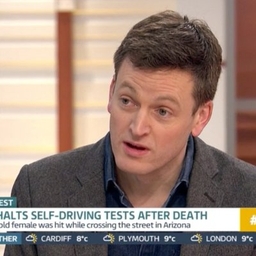
Jack Stilgoe
Contributor at Freelance
Professor @stsucl; @responsibleAIUK; https://t.co/Klyk2uOVgb
Articles
-
2 months ago |
science.org | Guan Wang |Jedediah F. Brodie |Thao-Quyen Nguyen |Jack Stilgoe
On the corners of the Holborn viaduct in central London, there are four statues: Commerce, Agriculture, Fine Art, and Science. The figure representing Science looks like she should be in Ancient Greece, but she is incongruously holding a Victorian contraption with two balls on diagonal struts. The object, an advertisement for Britain’s technological prowess during the Industrial Revolution, is a flyball governor.
-
Dec 19, 2024 |
science.org | Jack Stilgoe
St. Ives is an idyllic seaside town on the southwest tip of England. It is a magnet for holidaymakers and artists. In early 2023, its residents were surprised to find that their beloved bay had become the location for an experiment. A technology start-up called Planetary Technologies had gained permission from the local water company to add magnesium hydroxide to a wastewater outlet pipe and pump it a mile offshore.
-
Aug 22, 2024 |
science.org | Girardin Jean-Louis |Jack Stilgoe
When it comes to making decisions about artificial intelligence (AI), Eric Schmidt is very clear. In 2023, the former Google Chief Executive Officer told NBC’s Meet the Press, “there’s no way a nonindustry person can understand what is possible. It’s just too new, too hard, there’s not the expertise.” But if, as Schmidt believes, AI will be the next industrial revolution, then the technology is too important to be left to technology companies.
-
Jul 28, 2024 |
nature.com | Rokia Ballo |Warren Pearce |Jack Stilgoe
AbstractIn early 2021, the United Kingdom (UK) had the highest per capita death rate from Covid-19 of any large country. Yet it had previously been ranked as one of the best prepared countries for a future pandemic. This gap between preparedness and performance has been the subject of intense debate, including as part of the UK Covid-19 Inquiry. In this paper, we contribute to this ongoing process of reflection by identifying the imagined public(s) within the UK’s scientific advice system.
-
Apr 18, 2024 |
science.org | Jacob H Wilde |Anurag Verma |Zhi Yi Lin |Jack Stilgoe
There’s a scene in the movie Oppenheimer in which the protagonist is trying to explain to General Groves, his military overseer, the hazards of their endeavor. Groves asks Oppenheimer, “Are you saying there’s a chance that when we push that button, we destroy the world?“ The physicist says, “The chances are near zero.” When Groves, understandably alarmed, asks for clarification, Oppenheimer responds, “What do you want from theory alone?”It’s a compelling setup.
Try JournoFinder For Free
Search and contact over 1M+ journalist profiles, browse 100M+ articles, and unlock powerful PR tools.
Start Your 7-Day Free Trial →X (formerly Twitter)
- Followers
- 10K
- Tweets
- 32K
- DMs Open
- Yes

RT @LSEInequalities: Coming up this week at LSE Festival 🎉 Join us on Wednesday 18 June for a thought-provoking discussion on the future…

RT @carsjung: Excited to be hiring a Senior AI Research Fellow @IPPR . With AI progressing rapidly, the economic and social impacts could b…

RT @HilaryCottam: Next week join me to talk about #TheWorkWeNeed 6.30 pm June 18 @LSEInequalities 4.30 pm June 19 @IIPP_UCL I will be j…